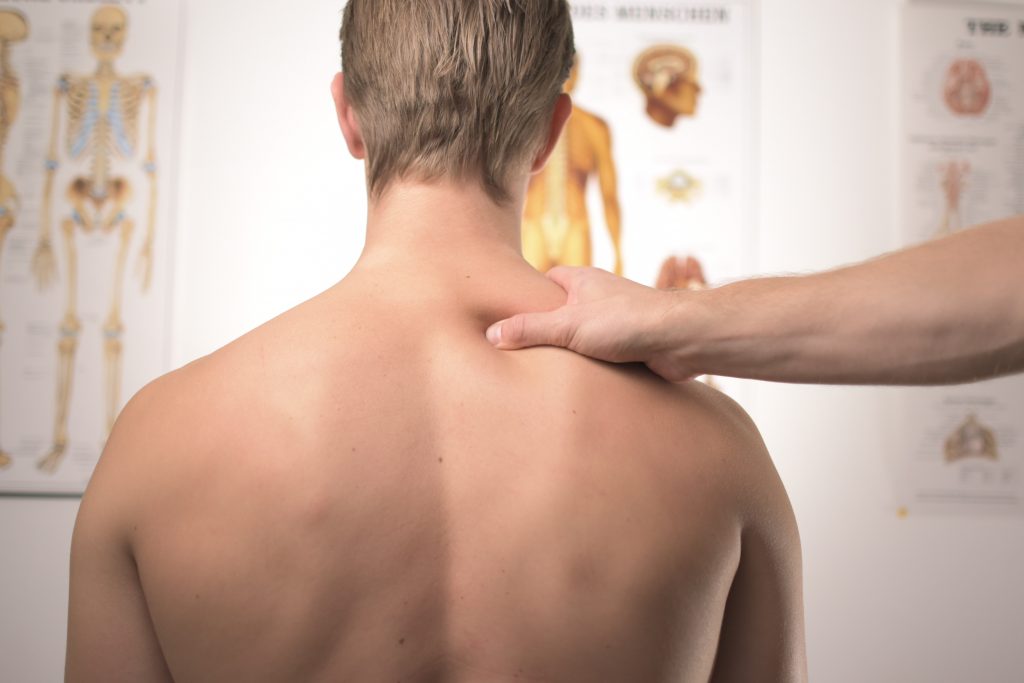It doesn’t matter what type of chronic pain you have, how often you have flare-ups, or how bad it is, chronic pain is it’s own debilitating condition. Chronic pain can be caused by any number of health problems and can impact how you live your life. Back pain of any type can quickly degrade into chronic pain if it persists for more than six weeks, and can continue for far longer than that. While back pain is far from the only type of chronic pain out there, it causes problems for millions of Americans each year. So what is it like to live with chronic pain, and what can be done about it? These are good questions and important ones to address if you or a loved one face a chronic pain diagnosis. With years of experience helping patients with chronic back pain and regular pain management at our New Jersey offices, the doctors of the Spine INA (Spine INA) are well equipped to help you and answer all of your questions.
What is it like to live with chronic pain?
If you’ve never lived with chronic pain, it can be difficult to empathize with. In the same respect, living with chronic pain can be exceptionally difficult to verbalize to others. This is because constant pain sensations are a whole different experience than acute ones. The biggest difference is that chronic pain doesn’t just mean that your body hurts, it also wears on you mentally and takes a toll on your overall physical health. It’s a truly draining experience. And what is often worse is the lack of empathy and loneliness that can come from having chronic pain.
The number one thing to remember, however, is that there are steps you can take in order to help manage your pain and make sure that it doesn’t take control of your life. Addressing your lifestyle and shaping it to best relieve your pain is exceptionally important. Don’t let your chronic pain drive you crazy; instead, tackle it head on with optimal pain management techniques, including the following.
What can be done about it?
See a Specialized Pain Management Doctor
One of the best things you can do when you have chronic pain is to not stop searching for a diagnosis, and then when you find one, work with dedicated professionals. Specialized pain management doctors have the ability to address your pain as a whole and also to help you find ideal coping mechanisms for any specific triggers. You’ll want to search for a doctor who has lots of experience with the part of the body you struggle with the most. For example, if you have back pain, then the spinal specialists at Spine INA truly have the experience and knowledge to help you cope. Specialists also know more about what could be actually causing your pain than just a generalist, which is always beneficial when working towards a long-term solution.
Learn Mindfulness
While you should never be told that your pain is all in your head (and trust us some doctors do say that), there is something to be said for the mind/body connection that exists. Being able to reduce stress and take control of your thoughts can help with how you feel overall. Positive thoughts can lead to positive feelings, and fewer negative bodily reactions. Mindfulness meditation is one thing that anyone can do that has been shown in many studies to help provide both pain relief and improved positive thoughts. Taking just a few minutes a day to acknowledge your thoughts about your chronic pain and then clearing your mind can be beneficial.
Talk About Your Chronic Pain
Finding people to relate to or to talk with in general can help ease the mental burden of living in chronic pain. If you have a family member that is a good listener and is always ready to lend an ear, they may be the perfect sounding board. In the same respect, your chronic pain may be draining on your family and friends, so perhaps a counselor or support group is a better choice. Either way, you don’t want to deal with your chronic pain all alone, and you shouldn’t have to.
Find What Feels Good to You
A big part of pain management is figuring out what triggers your pain and what reduces your pain. The main point is that you need to find what feels good to you and what helps you. If regularly taking hot baths gives you an hour of relief afterwards; do it. If you’re a fan of snuggling up in a big, fluffy blanket with a heating pad; then do it. If taking a walk around the neighborhood is tough at first, but by the end you feel better; do it. Find what gives you some form of relief and try to work your day around that. It’s important to figure out what works for you.
Learn Your Limits
A very hard thing to accept about chronic pain and conditions is the fact that you now have limits. These limits can be substantial or they can be simple and surprising. But the point is that chronic pain limits what you’re able to do and accomplish. It’s important to learn what these limits are so that you don’t over do anything and cause yourself more pain than necessary. If you know you can only do a mile of the hike, say so. If you worked all day and you just can’t do anymore or you know you’ll end up in pain, recognize this and stop. Take care of yourself first and foremost.
Address Your Food and Sleep Choices
If you have chronic pain, it’s important to take a closer look at the food you consume and the amount of sleep your get. Making sure you reduce the amount of inflammatories in your diet can help to reduce your overall pain levels you experience. In addition to using caution with the food that you eat, keep track of your sleep schedule. Regular sleep at consistent times can make a world of difference in how you experience pain. So set a timer if you have to and get those eight hours of sleep every night.
Be Patient and Forgiving with Yourself
Throughout your entire chronic pain journey, whether it’s your back or because of a chronic condition, it’s important to be patient. You aren’t going to heal overnight and the more you try and push yourself, the harder the process is going to be. Healing takes time and you need to be patient with the process and with yourself. Chronic pain means that you’re probably not going to be able to do the things you used to and that’s okay. Forgive yourself for your perceived shortcomings and be kind to yourself each day.
Throughout your pain journey, try these tips and let the back specialists at the Spine INA be the specialized doctors that you turn to for chronic back pain. You don’t have to suffer without help, and you don’t have to search out answers on your own. Let us help you find relief for your back pain, because you deserve it.










Leave a Reply